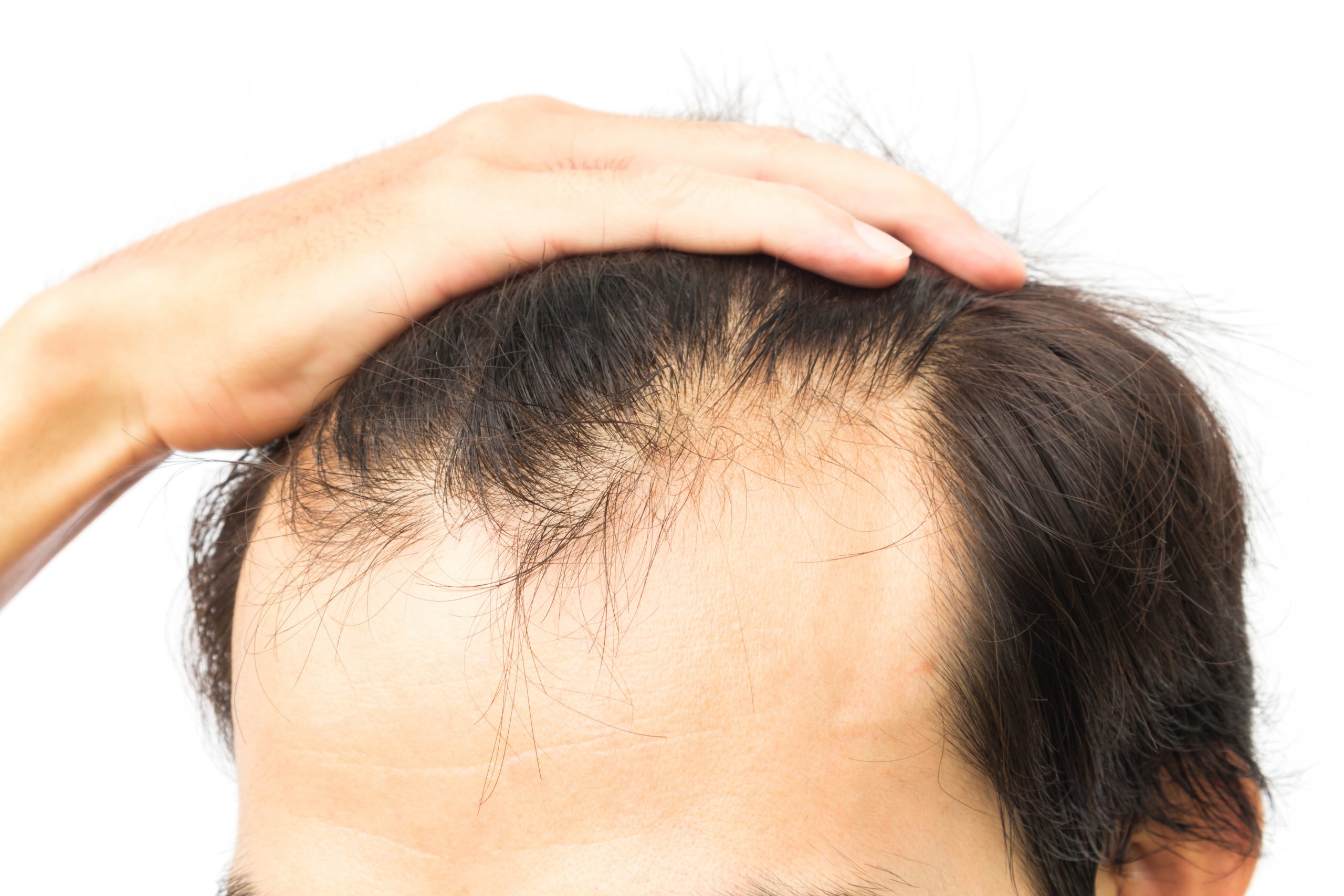You can lose 50-100 hairs every day without even noticing. The concern begins with a patchy hair loss, and you start to see baldness on your scalp.
The lifespan of every hair on your scalp is between 3-5 years. Men experience hair loss more commonly than women do. By the time they turn 50, about 85% of men experience thinning of hair, according to the American Hair Loss Association.
There are some preventive measures one can take to prevent hair loss. Let’s discuss the causes and prevention of hair fall.
What causes hair loss?
Genetics:
The hereditary condition that develops with aging is the most common cause of hair loss. The crown starts to thin, and the hair at the temple starts to recede. The hairline eventually rises to the point where it joins the patch at the crown, leaving the entire scalp bald.
Hormonal changes:
During menopause, women experience reduced estrogen and progesterone levels, enhancing the effects of androgens (male hormones). Androgens have inhibitory effects on hair follicles leading to hair follicle shrinkage and thinning of hair. Also, hair grows slowly and falls off easily.
Medical disorder:
Hair follicles are responsible for holding each hair in its place. Alopecia Areata is a common disease in which the body’s immune system damages hair follicles, and you experience hair loss.
Medications:
Anti-depressants, hypertensive drugs, and drugs for gout, cancer, and arthritis cause hair loss.
Stressful conditions:
Telogen effluvium is temporary hair loss due to stress, shock, or a traumatic experience. Generally, the top of the scalp is affected.
Poor diet:
Poor diet results in noticeable hair loss after two to three months of consuming a diet low in protein.
Highly strict diets for losing weight can result in visible hair loss, which normally occurs three months after losing 15 pounds or more of body weight.
.
Radiation therapy:
Radiation therapy may result in hair loss or thinning in the area of treatment. For example, if you receive radiation to your head, you may lose some or all of the hair there, including your eyebrows and eyelashes, but if you have therapy to your hip, you won’t.
Excessive Hairstyling and hair treatment:
Excessive styling and tight-pulling hairstyles like pigtails and cornrows can result in traction alopecia, a type of hair loss. Scarring may result in permanent hair loss.
Hair loss prevention:
Take care of your hair and scalps:
A daily 5-minute massage to the scalp with essential oil increases the blood flow to the hair follicles, thus promoting hair growth. Always massage with fingertips in a circular motion and leave overnight wearing a shower cap.
During hair wash, the scalp should only be lightly massaged with shampoo, not the hair, according to the American Academy of Dermatology Association (AAD). The Association also recommends applying conditioner after each shampoo.
According to the AAD, tight hairstyling like cornrows, buns, or ponytails might harm your hair, so opt for free-flowing styles instead.
Take a healthy diet:
What you eat can greatly impact your hair. A healthy and balanced diet with proper water intake and hydration ensures healthy hair.
The cells that make up each strand contain the tough protein keratin, which needs to be continuously nourished with minerals and vitamins for your hair to grow long and strong.
Therefore, your diet should contain
- Lean proteins
- Fresh fruits and
- Dark green leafy vegetables
- Nuts
A diet rich in antioxidants helps in preventing hair fall. Sources of antioxidants are strawberries, blueberries, spinach, kale, beans, and legumes, spinach.
Take supplements:
If you are eating a balanced diet, supplements are not needed. However, talk to your doctor if you don’t get any of these supplements in an adequate amount in your diet:
Biotin (vitamin 7)
You can usually get biotin from egg yolks, whole grains, and meat. But certain conditions lower its levels in the body, including pregnancy, breastfeeding, and some drugs. So you might want to take supplements to maintain a normal range.
Iron
- Iron deficiency is the leading cause of anemia, resulting in paleness, fatigue, and hair loss. Iron is present in Red meat, Leafy green veggies, and Legumes. However, if you are a vegan or usually get heavy periods, consider taking an iron supplement to prevent hair loss.
Vitamin C
Citrus fruits, Leafy greens, and Bell peppers are rich in Vitamin C. You can additionally take Vitamin C supplements to help Iron absorption in the body.
Vitamin D
Low levels of vitamin D can lead to hair fall.
You can get Vitamin D from sunlight, but sometimes sun exposure is not enough; therefore, consider taking Vitamin D supplements
Zinc
Zinc has an important role in the formation of proteins present in hair and hair loss is one of the main symptoms of zinc deficiency. It is not synthesized in our bodies. Therefore one must take zinc supplements to enhance hair growth.
Buy hair growth supplements online:
If you are looking for hair growth supplements online. You can check the hairbrush
The website claims that its vitamins are scientifically designed to give all the essential components for promoting longer, healthier hair with the help of an authorized, leading manufacturer.
Also, they ship internationally, so you can receive the supplement of your choice by ordering online.
Hair growth therapy in Malaysia:
Get hair growth therapy at Somore Hair Growth Scalp Care Head Spa
They offer specialized care for various hair and scalp issues, including hereditary and dietary causes of hair loss, alopecia areata, scarring alopecia, cosmetic damage, and overly processed hair.
Buy Minoxidil online in Malaysia:
Minoxidil solution and foam treat male pattern baldness by increasing hair growth. For women with thinning hair, foam and 2% minoxidil solution are also used to promote hair growth.
You can order Minoxidil online in Malaysia and get the hair growth treatment right at your doorstep.
Best hair growth clinics in KL:
These are the few clinics that provide the best hair loss treatment in KL, Malaysia.
- Care Plus Clinic
- Chye Clinic Kepong


